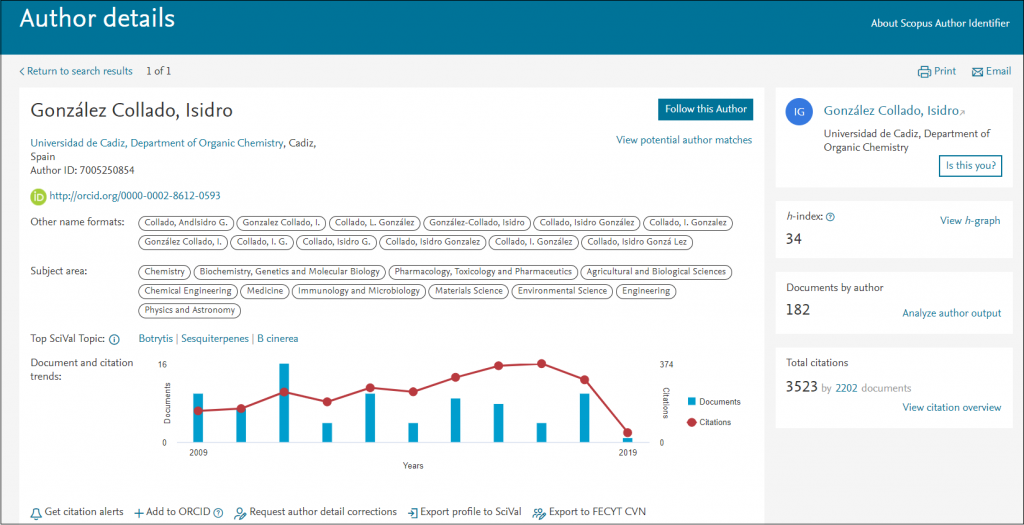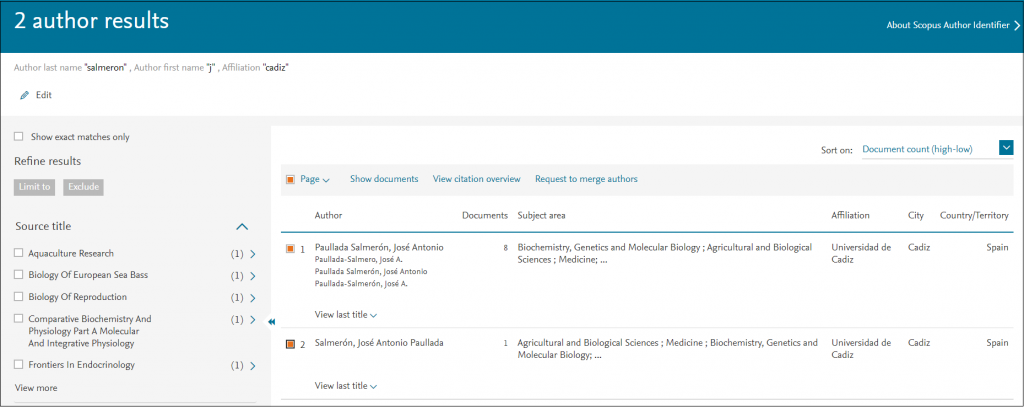Author profile on Scopus
Characteristics of the author profile in Scopus:
The author profile in Scopus is created automatically once the authors articles appear in Scopus. The main name of the profile corresponds to the signature of the most recent article in the profile. It is important to choose the right name, which differentiates us from other researchers with a similar name. The institutional affiliation of the profile helps to identify the author and provides visibility to the institution.
The Scopus Author Identifier assigns a unique number to groups of documents written by the same author through an algorithm that matches authorship based on their affiliation, address, subject area, source title, publication dates, citations, and co-authors. … Documents with insufficient data may not match, which may result in more than one hit list entry for the same author.

Features:
- It includes the list of your publications in Scopus, with the list of references cited and those that cite you, within this database.
- The author’s H-index is calculated with publications indexed in Scopus since 1970.
- It allows to export publications to bibliographic managers, in different formats and also direct export in CVN format from FECYT.
- It is possible to export the profile to SciVal, Scopus’s bibliometric tool, to analyze the set of publications in more detail.
- Provides multiple charts to display citation metrics. You can see the citation overview report in Analyze author output or View citation overview.
- It allows to generate alerts to follow the citations or new publications of an author.
Your profile on Scopus and ORCID
By associating your Scopus and ORCID profiles, you improve your identification within Scopus: it can be located by your ORCID as well as by name and avoids the dispersion of your articles in different profiles.
More information: How to import references from Scopus
How to request changes to your profile:
From the results page in Scopus:
Marking all profiles corresponding to the same author and then Request to merge authors

From the author profile page:
- Request author details corrections, from where it is possible to modify the name of the profile, join duplicate profiles, add your own documents or eliminate erroneous documents, and update the affiliation, following the step by step:

- View potential autor matches, Scopus offers name matches that could belong to the same author, can be flagged and Request to merge with author
More information on Scopus Support
If you have questions with your Scopus ID profile or want to request changes or unification in the profile, contact bibliometria@uca.es

